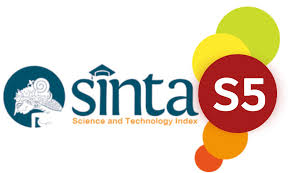The Self-Regulated Learning Strategies in Vocabulary Learning Using Socrative App
DOI:
https://doi.org/10.37253/iallteach.v5i1.6720Keywords:
Self-Regulated Learning, Vocabulary Learning, EFL Students, SocrativeAbstract
Self-Regulated Learning (SRL) strategies has been implemented in psychological learning context. The research regarding the SRL has dynamically spread to some recent issues in the learning process, including the language learning and technology to obtain students’ learning achievement. Therefore, this study hisghlights the English language learning among secondary school students regarding the vocabulary learning achievement through one of the Mobile Apps called Socrative. This study employed a qualitative research to investigate the issue and involved 21 students as participants who were observed and interviewed. The findings figured out that the students implemented two out of fourteen SRL strategies in the EFL vocabulary learning; (1) Seeking assistance and (2) Organization, but the fact revealed that the students did not make an outstanding result based on their work on Socrative regarding to the vocabulary learning.
Downloads
References
Bandura A. (1997). Self Efficacy; The Exercis of Contorol (pp. 5–174). https://www.academia.edu/28274869/Albert_Bandura_Self_Efficacy_The_Exercise_of_Control_W_H_Freeman_and_Co_1997_pdf
Baniabdelrahman, A. A., & Al-Shumaimeri, Y. (2013). Strategies used by Saudi EFL students to determine the meaning of English words. English Language Teaching, 7(1), 75–92. https://doi.org/10.5539/elt.v7n1p75
Benson, P. (2007). Autonomy in language teaching and learning. Language Teaching, 40(1), 21–40. https://doi.org/10.1017/S0261444806003958
Chang, C. K., & Hsu, C. K. (2011). A mobile-assisted synchronously collaborative translation-annotation system for english as a foreign language (EFL) reading comprehension. Computer Assisted Language Learning, 24(2), 155–180. https://doi.org/10.1080/09588221.2010.536952
Chen, J., & Hu, J. (2018). Enhancing L2 Learners’ Critical Thinking Skills Through a Connectivism-Based Intelligent Learning System. International Journal of English Linguistics, 8(6), 12. https://doi.org/10.5539/ijel.v8n6p12
Cuevas, J. (2015). Is learning styles-based instruction effective? A comprehensive analysis of recent research on learning styles. Theory and Research in Education, 13(3), 308–333. https://doi.org/10.1177/1477878515606621
Dakhi, S., & Fitria, T. N. (2019). The Principles and the Teaching of English Vocabulary: A Review. JET (Journal of English Teaching), 5(1), 15. https://doi.org/10.33541/jet.v5i1.956
Faraj, A. K. A. (2015). Scaffolding EFL Students’ Writing through the Writing Process Approach. Journal of Education and Practice, 6(13), 131–142.
Hamied, F. A. (2017). Research methods: A guide for first-time researcher. UPI Press.
Hayes, J. R. (2000). A new framework for understanding cognition and affect in writing. In R. Indrisano & J. R. Squire (Eds.), Perspectives on writing: Research, theory, and practice. International Reading Association, 6–44.
Huh, Y., & Reigeluth, C. M. (2016). Designing instruction for self-regulated learning. In Instructional-Design Theories and Models Vol. IV: The learner-centered paradigm of education. Routledge. https://www.researchgate.net/publication/308517808_Designing_Instruction_for_Self-regulated_Learning_pre-publication_final_draft_183
Jamalipour, S., & Farahani, A. A. K. (2015). The Effect Of Schematic Knowledge on Iranian EFL learner’s reading comprehension. International Journal of Applied Linguistics and English Literature, 4(6), 154–159. https://doi.org/10.7575/aiac.ijalel.v.4n.6p.154
Lee, W., Lee, M., & Bong, M. (2014). Testing interestand self-efficacy as preditors of academic self-regulation and achievement. Contemporary Educational Psychology, 86–99. https://doi.org/10.1016/j.cedpsych.2014.10.002
Pintrich, P. R. (1999). The role of motivation in promoting and sustaining self-regulated learning. International Journal of Educational Research, 31(6), 459–470. https://doi.org/10.1016/S0883-0355(99)00015-4
Prensky, M. (2001). Digital Natives, Digital Immigrants Part 1. On the Horizon, 9(5), 1–6. https://doi.org/10.1108/10748120110424816
Sun, T., & Wang, C. (2020). College students’ writing self-efficacy and writing self-regulated learning strategies in learning English as a foreign language. System, 90, 102221. https://doi.org/10.1016/j.system.2020.102221
Thorne, S. L., Black, R. W., & Sykes, J. M. (2009). Second language use, socialization, and learning in internet interest communities and online gaming. Modern Language Journal, 93(SUPPL. 1), 802–821. https://doi.org/10.1111/j.1540-4781.2009.00974.x
Zimmerman, B. J. (1990). Self-Regulated Learning and Academic Achievement: An Overview. Educational Psychologist, 25(1), 3–17. https://doi.org/10.1207/s15326985ep2501_2
Zimmerman, B. J., & Schunk, D. H. (2008). Motivation: An essential dimension of self-regulated learning. In D. H. Schunk & B. J. Zimmerman (Eds.), Motivation and self-regulated learning: Theory, research, and applications. Lawrence Erlbaum Associates Publishers.




.png)






